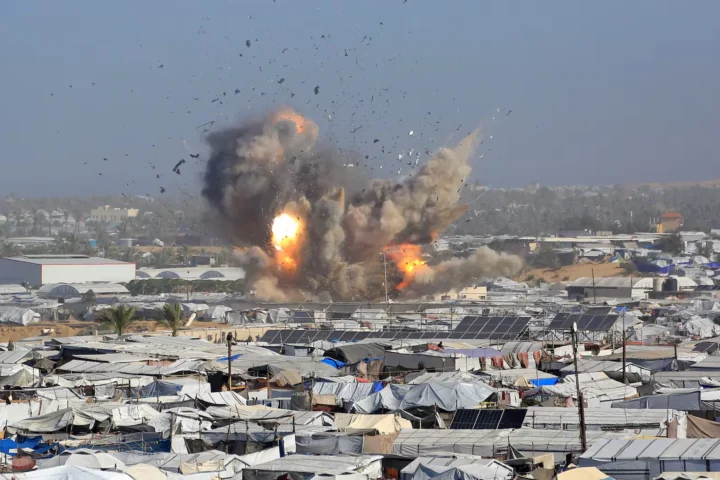In a significant escalation of its military campaign in Yemen, the United States launched a deadly airstrike late Thursday on the Houthi-controlled Ras Isa oil terminal along the Red Sea. The assault, which marked the first direct U.S. strike on Yemen’s oil infrastructure since mid-March, left at least 74 people dead and 171 injured, according to local health officials.
The Ras Isa facility, capable of storing up to 3 million barrels of oil, plays a vital role in the Houthi rebels’ fuel supply chain, producing gasoline, diesel, and liquefied petroleum used to power their military operations. Satellite imagery reviewed by The Associated Press on Friday appeared to show oil leaking into the Red Sea, raising concerns over potential environmental fallout.
The U.S. Central Command (CENTCOM) defended the operation, stating on social media platform X that the strike aimed to “eliminate this source of fuel for the Iran-backed Houthi terrorists” and cut off a stream of revenue that has allegedly enabled them to “terrorize the region for over a decade.”
“This strike was not intended to harm the people of Yemen, who rightly want to throw off the yoke of Houthi subjugation and live peacefully,” CENTCOM said, while declining to address the reported casualties.
Yemen’s Houthi-led government swiftly denounced the attack as a “war crime,” asserting that the Ras Isa terminal is a civilian facility. Iran, a key backer of the Houthis, echoed the condemnation, with its foreign ministry labeling the operation “barbaric.”
Thursday’s strike follows a series of U.S. military actions against Houthi targets since March 15, when President Donald Trump intensified efforts to dismantle the rebel group’s infrastructure. The Trump administration officially designated the Houthis as a foreign terrorist organization in March. Just last week, the State Department warned that any country or commercial entity supporting the Houthis — including through oil shipments — would face consequences.
Despite mounting international pressure, the Houthis have continued their confrontational stance, particularly in the wake of Hamas’s attack on Israel on October 7, 2023. Declaring solidarity with Hamas, the Yemeni rebel group has launched attacks on commercial shipping lanes in the Red Sea and targeted Israeli territory. Following the U.S. strike on Ras Isa, Israeli officials accused the Houthis of launching a missile that triggered air raid sirens in Tel Aviv.
The airstrike comes at a particularly delicate moment for U.S. diplomacy, just days ahead of a second round of nuclear negotiations with Iran. Analysts are not optimistic about the prospects.
“There are no great deals, good options, or Hollywood endings when negotiating with Iran on the nuclear issue,” wrote Aaron David Miller and Lauren Morganbesser of the Carnegie Endowment for International Peace, casting doubt on the likelihood of a breakthrough.
As tensions soar in the region, Thursday’s strike underscores the growing complexity of U.S. military and diplomatic engagement in the Middle East — and the high human cost of that involvement.











